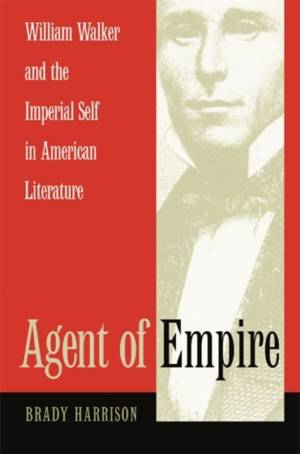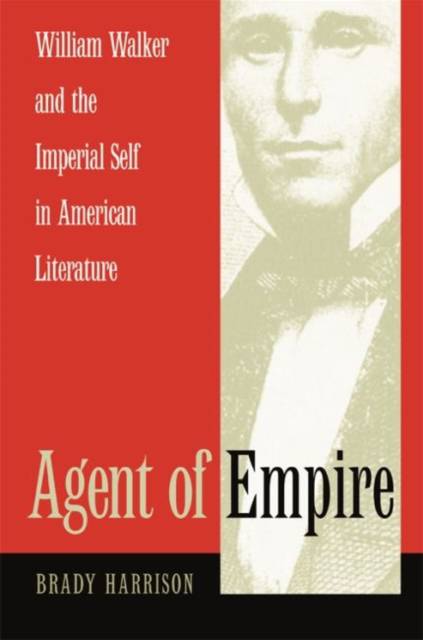
- Retrait gratuit dans votre magasin Club
- 7.000.000 titres dans notre catalogue
- Payer en toute sécurité
- Toujours un magasin près de chez vous
- Retrait gratuit dans votre magasin Club
- 7.000.0000 titres dans notre catalogue
- Payer en toute sécurité
- Toujours un magasin près de chez vous
Agent of Empire
William Walker and the Imperial Self in American Literature
Brady HarrisonDescription
Agent of Empire is a detailed study of creative works inspired by the escapades of the American soldier of fortune William Walker. The leader of several fractious, bloody forays into Mexico and Central America in the 1850s, Walker was executed in 1860 by a Honduran firing squad. Brady Harrison looks at a dozen works, such as Bret Harte's novel The Crusade of Excelsior (1887) and Alex Cox's film Walker (1987), to show how Walker's life and legacy have been explored in journalism, poetry, fiction, drama, and cinema for over a century. At the heart of our ongoing interest in Walker, says Harrison, is the need to understand the ever-shifting ambitions and arguments that have driven American economic, military, and paramilitary ventures around the globe over the past 150 years.
Harrison discusses how the mercenary romance, an understudied subgenre of the historical romance first popularized by Bret Harte and Richard Harding Davis, owes its conception to William Walker. Engaging the work of other scholars such as Quentin Anderson and Judith Butler, Harrison places Walker in the company of Aaron Burr, Theodore Roosevelt, Oliver North, and other American conquistadors. Walker and such fellow agents of empire, Harrison argues, exemplify a peculiar merging of Emersonian inner mastery and the American habit of equating self with nation. Inward-looking at first, they soon set their sights, as special agents of providence or the state, on such places as Mexico, Nicaragua, Cuba, the Philippines, and more recently, Vietnam and Iraq. Agent of Empire is a timely exploration of American imperialism and its troubling components of hypermasculinity, racism, and ambition. Harrison shows how literature helps us gauge the ever-shifting desires, fantasies, arguments, and ideologies that continue to underwrite our imperial ventures, private and public.Spécifications
Parties prenantes
- Auteur(s) :
- Editeur:
Contenu
- Nombre de pages :
- 240
- Langue:
- Anglais
Caractéristiques
- EAN:
- 9780820325446
- Date de parution :
- 02-08-04
- Format:
- Livre relié
- Format numérique:
- Genaaid
- Dimensions :
- 158 mm x 234 mm
- Poids :
- 566 g

Les avis
Nous publions uniquement les avis qui respectent les conditions requises. Consultez nos conditions pour les avis.






